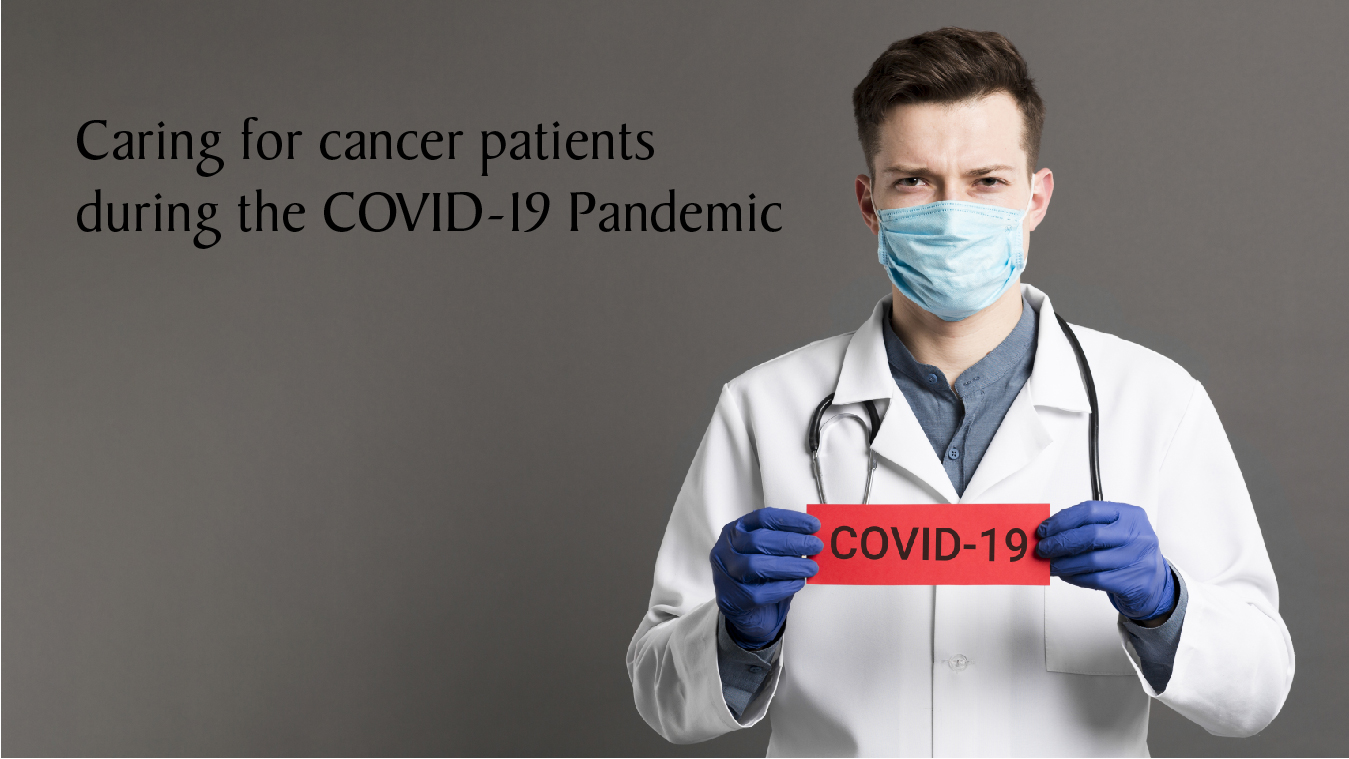COVID-19 Pandemic
Date: 21st March 2020
Equal Contribution: Nizar Bitar 1, Joseph Kattan 2, Hampig Raphael Kourie 2, Deborah Mukherji 3, Nagi El Saghir 3
1 President of the Lebanese Society of Medical Oncology (LSMO)
2 Hôtel Dieu de France University Hospital, Saint Joseph University of Beirut, Lebanon
3 American University of Beirut Medical Center (AUBMC), Beirut, Lebanon
A) Introduction
COVID-19 is a highly transmissible viral illness caused by SARS-CoV-2 of the coronavirus family. This disease is highly transmissible mostly through coughing and sneezing droplets, contaminated surfaces and aerosols. Airborne transmission remains debatable but the virus may survive in the droplets in the air for a short time.
It is known that cancer patients are more vulnerable and fragile toward viruses. The risk of hospitalization is 4 times higher, and the risk of death 10 times higher compared to the general population, namely in patients with hematologic malignancy or receiving many lines of chemotherapy or presenting neutropenia and lymphopenia (Bitterman et al, Cochrane Database Syst Rev , 2018) .
According to recently published Chinese data, there is no increase in incidence of COVID-19 infection in cancer patients but cancer patients had a higher incidence of severe events; the risk of hospitalization for cancer patients were higher compared to the general population (1% versus 0.29%). Moreover, in infected patients by COVID-19, the risk of developing respiratory complications necessitating intensive care was higher in cancer patients compared to non-cancer patients (39% versus 8% p=0.003) even among a small number of 18 out of 1580 patients (Liang et al , Lancet , 2020) .
Based on these results, it is important to establish urgent local guidelines and recommendations for caring for patients with cancer during the COVID-19 outbreak period based on their disease stage, site and its specific treatment.
In view of the evolving spread of COVID-19 in Lebanon, and the Lockdown (State of Mobilization) imposed by Health Authorities and Government, and based on experience in China, Italy and other countries, LSMO is issuing guidelines to help Oncologists, Oncology staff, patients and their relatives to cope and deliver the most optimal care while reducing their chances of contracting, and transmitting the SARS-CoV-2 during the present outbreak that is predicted to last for a while.
B) The 5 recommendations for daily practice
- Prevention of contamination: Screening of patients and visitors from travel history and symptoms. DO NOT ADMIT COVID-19 positive patients and suspected cases to outpatient department or the oncology floor. Refer suspected and infected cases to COVID-19 specialized departments and services for management.
- Prioritization of patients by favoring curative therapies versus palliative, application of therapy pause when justified, and withholding chemotherapy and immunotherapy for patients with poor prognosis.
- Avoid overcrowded clinics (by deferring regular routine follow up with over-the-phone consultations) and chemotherapy units by decreasing the number of patients receiving weekly chemotherapy versus more spaced regimens, consider switch to oral chemotherapy when possible versus intravenous treatment.
- “Sanctuarization” of oncology department: Withhold any immunosuppressive treatment of patients diagnosed to have COVID-19 until full recovery. Admission of COVID-19 positive should be done in specialized departments.
- Manage patients in need of supportive care and palliation by phone calls and by keeping them safe at home.
C) Prevention advice for patients
- Avoid crowded places
- wash hands thoroughly according to WHO guidelines
- Use sanitizers and gloves / wear masks properly when going to a clinic/hospital
- Do not have contact with family/friends with COVID-19 symptoms/possible exposure
- Practice social distancing with all people to protect yourself and others
- Keep in contact with medical team and report new symptoms by telephone first (particularly fever/cough/shortness of breath)
D) Precaution for oncology staff
- Wash hands and use sanitizers between examinations of patients
- Maintain social distancing of 1 meter (6 to 8 feet) apart even in waiting and examination rooms
- Use gloves when examining patients
- Disinfect commonly touched items
- Asking comers to wear a mask if necessary
- Reducing the number of daily clinic appointments and spacing them out
- Reducing waiting time to a minimum
- Limiting the number of accompanying persons or visitors to one
- Use online meeting tools for tumor boards, grand rounds and classes for medical students
- Stop traveling for oncology staff, unless absolutely necessary
E) Management of patients in outpatient setting
- Screening questions before admission to unit (Fever/cough/chest pain/travel history/contact travel history/exposure to patient with COVID-19 infection)
- Patients with symptoms – isolate, surgical mask on patient and companions, staff to wear personal protective equipment (PPE) and direct to nearest screening center if stable, escort to emergency department if unstable informing team prior to arrival
- Patients with travel/contact history and asymptomatic- request to self-quarantine for 14 days and re-schedule appointment if possible. If not possible, patient to be isolated, patient and medical team to wear PPE (both wearing facemask, medical team minimum PPE gloves, apron and arm covers)
F) Suggested strategy in different settings for cancer patients
|
Setting |
Suggested Strategy |
|
Patients on follow-up or on endocrine/oral targeted therapies |
|
|
Patients with early-stage cancer/curative setting |
|
|
Patients with metastatic disease |
|
References/resources
- Curigliano G. The treatment of patients with cancer and containment of COVID-19: Experiences from Italy. https://dailynews.ascopubs.org/do/10.1200/ADN.20.200068/full/
- https://www.asco.org/asco-coronavirus-information
- Willan et al. Care of hematology patients in a COVID-19 epidemic. https://onlinelibrary.wiley.com/doi/epdf/10.1111/bjh.16620
- https://www.ebmt.org/ebmt/news/coronavirus-disease-covid-19-ebmt-recommendations-update-march-16-2020
- Liang W, Guan W, Chen R et al. Cancer patients in SARS-CoV-2 infection: a nationwide analysis in China. Lancet Oncol. 2020;21(3):335-337.
- Bitterman R, Eliakim-Raz N, Vinograd I et al. Influenza vaccines in immunosuppressed adults with cancer. Cochrane Database Syst Rev. 2018 :CD008983.
- El Saghir NS. Oncology Care and Education during the Coronavirus (COVID-19) Pandemic : https://connection.asco.org/blogs/oncology-care-and-education-during-coronavirus-covid-19-pandemic. ASCO Connection, March 19, 2020.
- https://www.asco.org/asco-coronavirus-information/care-individuals-cancer-during-covid-19
- https://www.asco.org/asco-coronavirus-information/provider-practice-preparedness-covid-19






